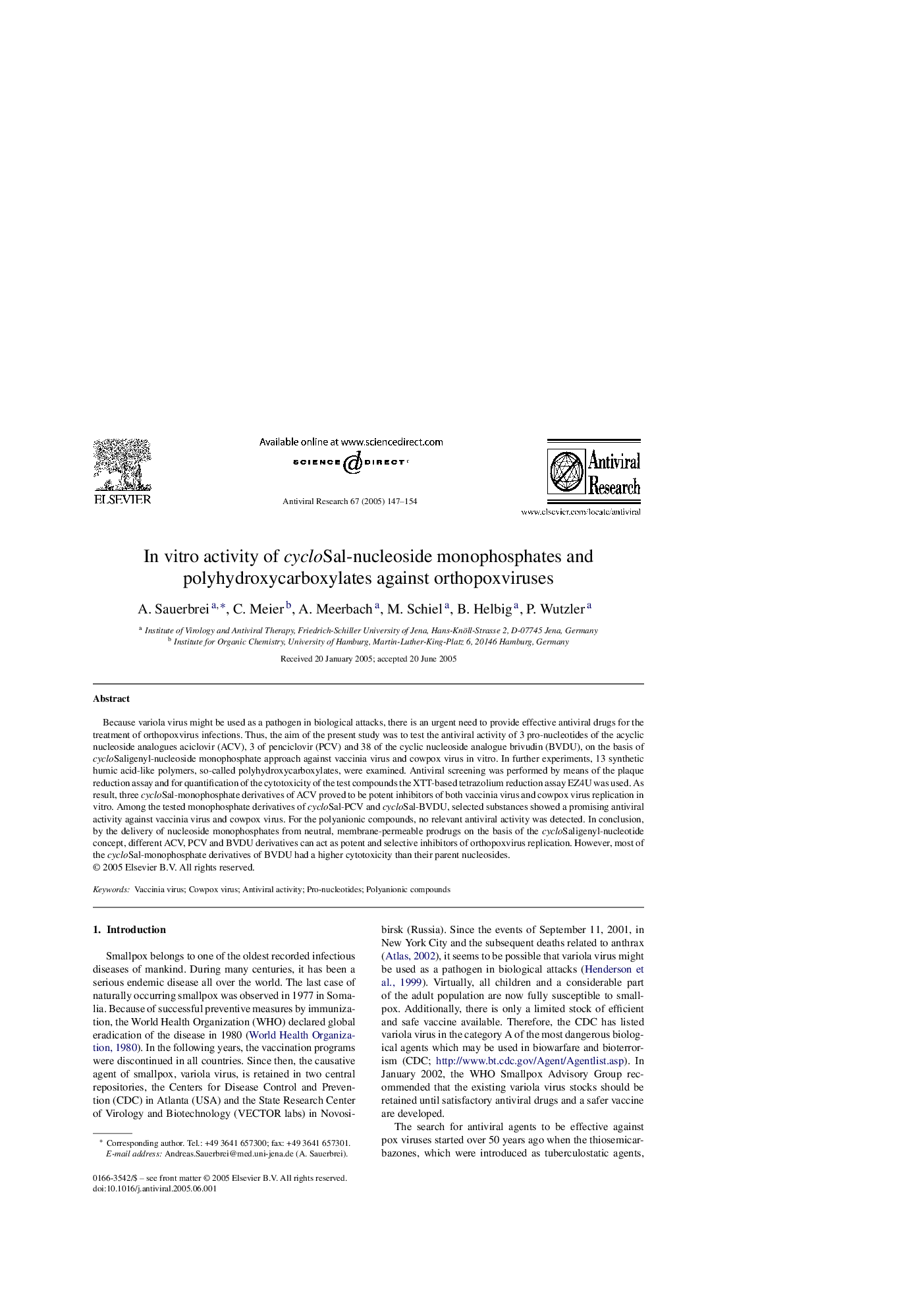| Article ID | Journal | Published Year | Pages | File Type |
|---|---|---|---|---|
| 9000925 | Antiviral Research | 2005 | 8 Pages |
Abstract
Because variola virus might be used as a pathogen in biological attacks, there is an urgent need to provide effective antiviral drugs for the treatment of orthopoxvirus infections. Thus, the aim of the present study was to test the antiviral activity of 3 pro-nucleotides of the acyclic nucleoside analogues aciclovir (ACV), 3 of penciclovir (PCV) and 38 of the cyclic nucleoside analogue brivudin (BVDU), on the basis of cycloSaligenyl-nucleoside monophosphate approach against vaccinia virus and cowpox virus in vitro. In further experiments, 13 synthetic humic acid-like polymers, so-called polyhydroxycarboxylates, were examined. Antiviral screening was performed by means of the plaque reduction assay and for quantification of the cytotoxicity of the test compounds the XTT-based tetrazolium reduction assay EZ4U was used. As result, three cycloSal-monophosphate derivatives of ACV proved to be potent inhibitors of both vaccinia virus and cowpox virus replication in vitro. Among the tested monophosphate derivatives of cycloSal-PCV and cycloSal-BVDU, selected substances showed a promising antiviral activity against vaccinia virus and cowpox virus. For the polyanionic compounds, no relevant antiviral activity was detected. In conclusion, by the delivery of nucleoside monophosphates from neutral, membrane-permeable prodrugs on the basis of the cycloSaligenyl-nucleotide concept, different ACV, PCV and BVDU derivatives can act as potent and selective inhibitors of orthopoxvirus replication. However, most of the cycloSal-monophosphate derivatives of BVDU had a higher cytotoxicity than their parent nucleosides.
Related Topics
Life Sciences
Immunology and Microbiology
Virology
Authors
A. Sauerbrei, C. Meier, A. Meerbach, M. Schiel, B. Helbig, P. Wutzler,
